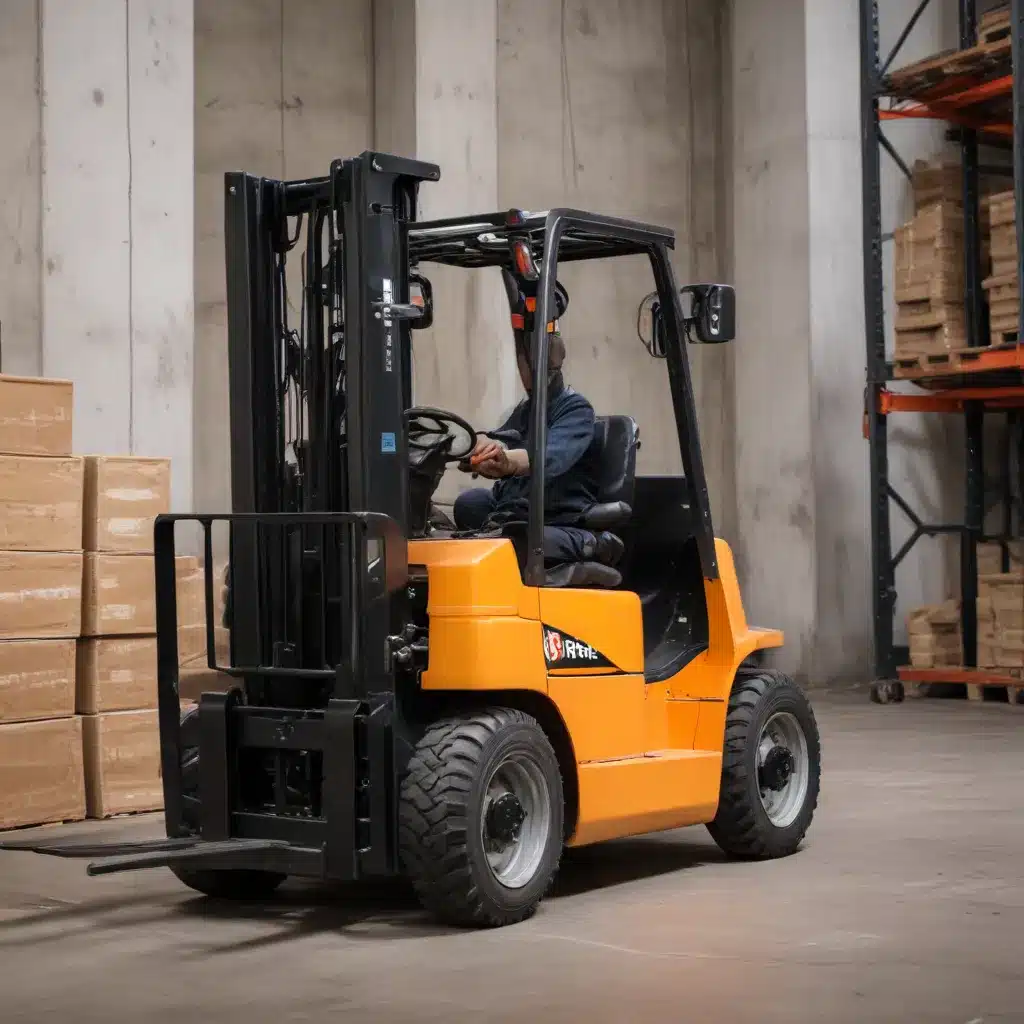
The Importance of Comprehensive Forklift Operator Training
As a seasoned industry expert in forklifts, warehousing, and logistics, I understand the critical role that forklift operators play in maintaining efficient and safe material handling operations. In today’s fast-paced business environment, investing in the development of forklift operator skills has become increasingly essential. Forklift operator training programs not only ensure compliance with Occupational Safety and Health Administration (OSHA) regulations but also empower your workforce with the necessary knowledge and competencies to navigate the challenges of this dynamic industry.
Compliance and Beyond: The Multifaceted Benefits of Forklift Operator Training
While OSHA regulations mandate comprehensive forklift operator training, the benefits of such programs extend far beyond mere compliance. By implementing robust forklift operator skill development initiatives, organizations can:
-
Enhance Workplace Safety: Thorough training equips forklift operators with the skills to safely operate these powerful machines, reducing the risk of accidents and minimizing the potential for costly injuries or property damage.
-
Improve Operational Efficiency: Skilled forklift operators can navigate warehouses and loading docks more effectively, optimizing material flow, reducing downtime, and boosting overall productivity.
-
Foster Employee Engagement and Retention: Investing in employee development demonstrates a commitment to their growth and well-being, which can lead to increased job satisfaction, motivation, and reduced turnover.
-
Stay Ahead of Industry Trends: As the material handling landscape evolves, forklift operator training programs can help your workforce stay informed about the latest equipment, technologies, and best practices, keeping your organization at the forefront of the industry.
Navigating the Forklift Operator Training Landscape
Ensuring that your forklift operators receive the necessary training and certification can be a complex undertaking. However, by understanding the key components of OSHA’s forklift operator training requirements and leveraging the resources available, you can seamlessly integrate comprehensive training programs into your workforce development strategy.
OSHA’s Forklift Operator Training Requirements
OSHA’s regulations (29 CFR 1910.178) outline the essential elements of forklift operator training, which include:
-
Formal Instruction: This component focuses on the theoretical aspects of forklift operation, covering topics such as safety, operations, maintenance, and OSHA compliance.
-
Practical Training: Hands-on training allows forklift operators to develop and demonstrate their skills in a real-world environment, ensuring they can safely operate the equipment.
-
Evaluation: OSHA mandates that employers evaluate each forklift operator’s performance to certify their competence and suitability for the job.
To meet these requirements, employers can leverage a combination of online training platforms, on-site instruction, and in-person evaluation by qualified personnel.
Accessing Forklift Operator Training Resources
Numerous educational institutions and training providers offer comprehensive forklift operator training programs to support organizations in meeting OSHA’s standards. These resources can include:
-
Community Colleges and Technical Institutes: Institutions like Gaston College and Lamar Institute of Technology often provide forklift operator training courses, ranging from basic operator certification to train-the-trainer programs.
-
Private Training Providers: Companies specializing in workplace safety and compliance, such as HSI, offer comprehensive online and blended forklift operator training solutions to help organizations meet OSHA requirements.
-
In-House Training: Some organizations choose to develop and deliver their own forklift operator training programs, leveraging experienced instructors and tailoring the curriculum to their specific needs.
Regardless of the training approach, it is essential to ensure that the program aligns with OSHA’s standards and provides the necessary theoretical knowledge, practical skills, and performance evaluation to certify your forklift operators.
Upskilling the Workforce: Continuous Forklift Operator Development
Forklift operator training should not be a one-time event, but rather a continuous process of skill development and refinement. Maintaining a culture of ongoing learning and improvement can yield significant benefits for your organization.
Refresher Training and Evaluations
OSHA requires that forklift operators undergo refresher training and evaluations at least once every three years, or whenever an operator demonstrates the need for additional instruction. This helps ensure that your forklift operators maintain their skills and stay up-to-date with the latest safety protocols and industry best practices.
Cross-Training and Skill Diversification
Encouraging forklift operators to cross-train on different forklift models and attachments can broaden their skillset and enhance their versatility. This not only improves operational flexibility but also provides opportunities for professional growth and development within your organization.
Incorporating Advanced Training and Certifications
As forklift technologies and industry standards evolve, consider offering advanced training programs that cover topics such as automated guided vehicles (AGVs), battery-powered forklifts, or specialized attachments. Encouraging your forklift operators to pursue additional certifications can further strengthen their expertise and demonstrate their commitment to continuous improvement.
Investing in Forklift Operator Mentorship Programs
Pairing experienced forklift operators with new or less experienced team members can foster a culture of knowledge-sharing and skill development. Mentorship programs not only enhance individual operator competencies but also contribute to the long-term growth and sustainability of your material handling workforce.
By embracing a comprehensive and continuous approach to forklift operator skill development, you can create a highly capable, adaptable, and safety-conscious workforce that drives operational excellence and positions your organization for long-term success.
Conclusion: Empowering the Forklift Operators of Tomorrow
Forklift operators are the backbone of efficient material handling operations, and their skills and knowledge are crucial to maintaining a safe, productive, and future-ready workforce. By implementing robust forklift operator skill development programs, you can not only ensure compliance with OSHA regulations but also unlock a wealth of benefits that strengthen your organization’s competitive edge.
Leverage the resources and best practices outlined in this article to design and implement a comprehensive forklift operator training strategy that empowers your team, boosts operational efficiency, and positions your organization for continued growth in the dynamic forklift and logistics industry. As an experienced industry expert, I’m confident that your investment in forklift operator skill development will yield dividends for years to come.
For more information on forklift reviews, safety guidelines, maintenance, and industry trends, be sure to visit Forklift Reviews. Our team of experts is dedicated to providing the insights and resources you need to elevate your material handling operations to new heights.

